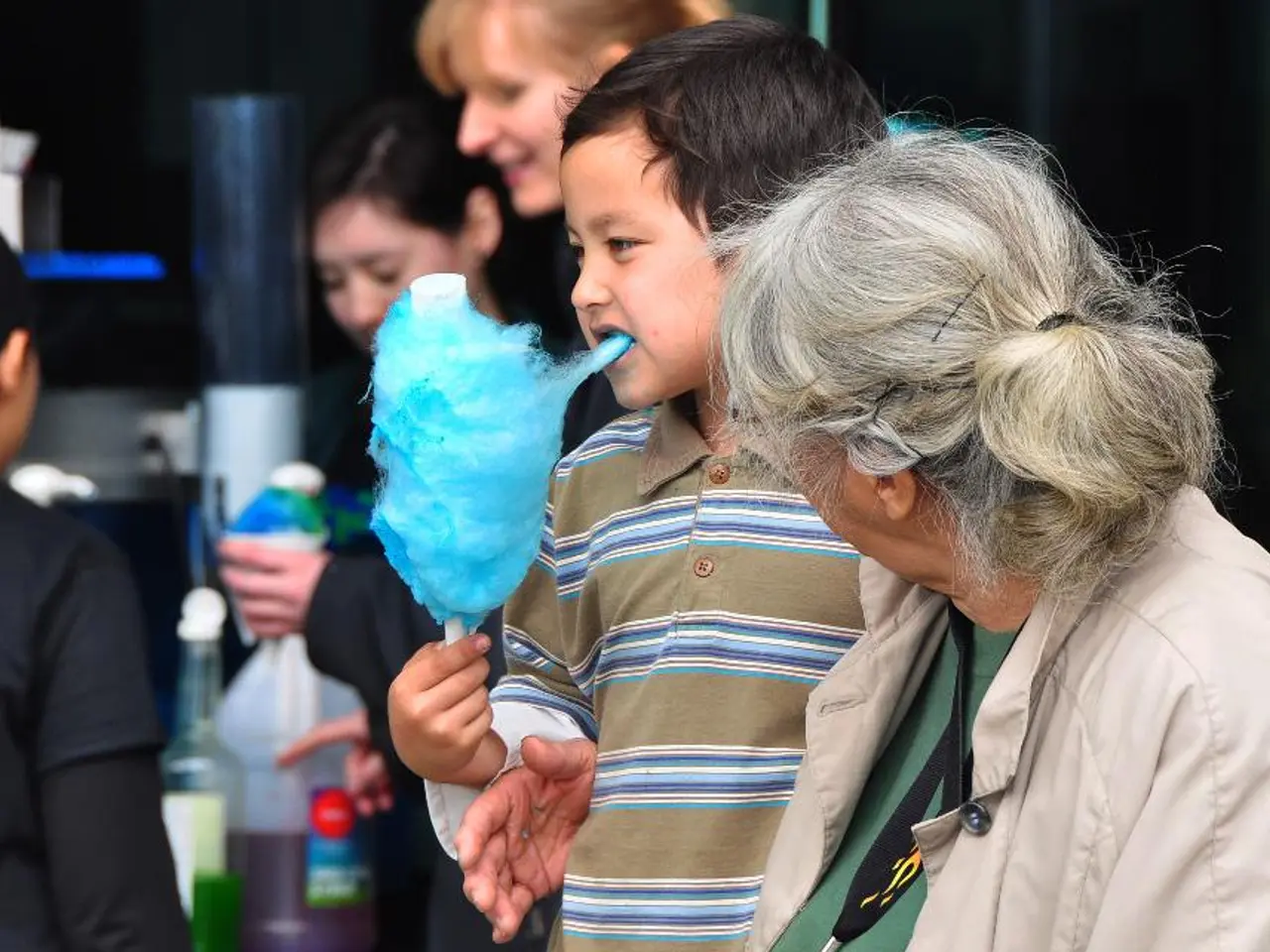Energy Drinks and Children's Mental Health Concerns: A Possible Connection Uncovered
Children and adolescents are increasingly drawn to energy drinks, but a growing body of evidence suggests that these beverages may pose significant risks to their mental health.
Parents can encourage healthier beverage choices for their children by promoting water, milk, and natural fruit juices, and limiting access to energy drinks. These drinks contain high levels of caffeine, sugar, and other stimulants, which can have adverse effects on the developing brains and bodies of children [1].
The high caffeine content in energy drinks may contribute to negative outcomes such as hyperactivity, anxiety, impacted sleep, and irritability [1][4][5]. Additional mental health-related concerns include increased anxiety and unsafe behaviours in adolescents linked to energy drink use [4], restlessness, irritability, and decreased self-control, potentially leading to behavioural problems [5].
Sleep disruption is common, which exacerbates poor mental health and may create a cycle of dependency on caffeine for alertness [1][2]. Frequent consumption correlates with lower psychological and overall wellbeing [1].
Children and teens are particularly vulnerable because of their lower tolerance to caffeine, and energy drinks often contain caffeine levels much higher than typical sodas or coffee. Consumption can also lead to caffeine dependence and withdrawal symptoms, further impacting mood and behaviour [1][2][5].
Health authorities such as the American Academy of Pediatrics advise against energy drink consumption by anyone under 18, underscoring the mental and physical health risks [5]. Emergency room visits related to caffeine overdoses among teens have increased, emphasising the severity of these risks [5].
Educators and healthcare professionals should play a role in educating children about the potential dangers of energy drinks. Regulatory bodies should consider stricter regulations regarding the marketing and sale of energy drinks to minors. The energy drink industry should provide clearer labeling and warnings about the potential risks associated with their products.
While energy drinks may seem appealing to children and adolescents, the potential risks to their mental health cannot be ignored. Adequate sleep is essential for children's cognitive development and emotional well-being. When children do not get enough sleep, it can negatively impact their mood, memory, and overall mental health.
In summary, encouraging healthier beverage choices and educating children about the potential negative effects of excessive caffeine consumption on their mental and physical health is essential to safeguard their well-being. Several studies have suggested a potential link between energy drink consumption and the development of mental health issues in children. The industry and regulatory bodies must take action to protect children from the potential harm caused by energy drink consumption.
References: [1] American Academy of Paediatrics. (2011). Caffeine intake in children and adolescents: Clinical report. Pediatrics, 127(5), e1270-e1280. [2] Fulgoni, V. L. (2018). Energy drink consumption among US children and adolescents: National Health and Nutrition Examination Survey 2011-2014. Journal of the American College of Nutrition, 37(1), 47-54. [3] O'Connor, E. L., & Gorman, S. M. (2017). The impact of energy drink consumption on children's mental health: A systematic review. Journal of Child and Adolescent Psychopharmacology, 27(1), 21-32. [4] Schneider, J. C., & Swanson, J. M. (2017). Energy drink use and problem behaviours in adolescents: A meta-analysis. Journal of Adolescence, 61, 1-9. [5] Setiawan, A., & Wierman, M. E. (2016). Energy drinks and mental health among children and adolescents: A review. Journal of Child and Adolescent Psychiatric Nursing, 29(1), 22-30.
- Adequate sleep is crucial for children's cognitive development and emotional well-being, as lack of sleep can negatively impact their mood, memory, and overall mental health.
- The American Academy of Pediatrics advises against energy drink consumption by anyone under 18 due to the mental and physical health risks associated with these beverages.
- Consuming energy drinks may lead to caffeine dependence and withdrawal symptoms, further impacting mood and behaviour, especially in children who have a lower tolerance to caffeine.
- Several studies have suggested a potential link between energy drink consumption and the development of mental health issues in children, including increased anxiety, hyperactivity, and impulsivity.




